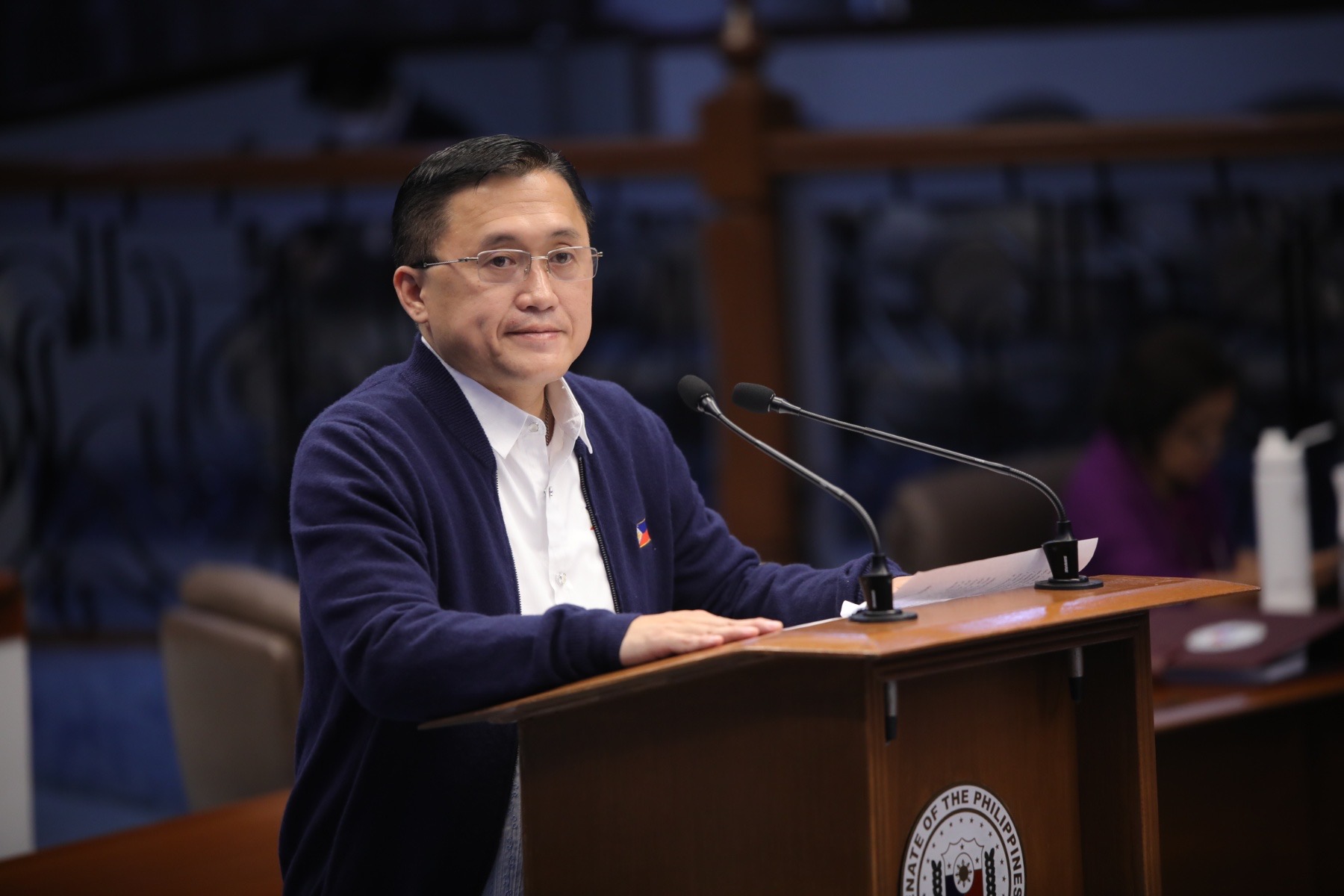


Senator Christopher “Bong” Go expressed his confidence that more Filipino students will be able to access quality education as proposed Senate Bill No. 1864, otherwise known as the “Student Loan Payment Moratorium During Disasters and Emergencies Act” was approved on the third and final reading on Monday, March 20.
The proposed measure, which Go co-sponsored and co-authored, aims to protect and promote the right of all citizens to quality education at all levels and to ensure that such education is accessible to all. It shall authorize the deferral of student loan collection for a reasonable period during and after the onset of disasters and other emergencies.
“Umpisa pa lang ng krisis, talagang maraming apektado lalo na sa mga estudyante at teachers. Considering that a large portion of Filipino youths are unable to access proper education, makakatulong po sa ating mga kabataan at kanilang mga pamilya na mabigyan sila ng palugit sa pagbayad ng student loans. Hangga’t maaari bawasan na natin ang iniisip nila,” Go highlighted.
“Alam naman po natin na education is an investment in one’s future. For this reason, a student loan program allows students to invest in themselves by pursuing higher education. By obtaining a degree, students can increase their earning potential and improve their job prospects,” he added.
The proposed act will provide moratorium on the enforcement of payment of all fees, charges, and costs relating to student loan programs for Higher Education and Technical-Vocational Education and Training (TVET).
Furthermore, the proposed bill shall cover enrolled students residing in barangays, municipalities, cities, provinces, or regions under a State of Calamity or State of Emergency as may be declared by the President of the Philippines or the local sanggunian concerned.
“Bigyan natin ng oportunidad ang lahat ng kabataan na makakuha ng proper education. Ang edukasyon ng kabataan ang susi sa magandang kinabukasan. School loan programs can help ensure that all students, regardless of their background, have access to higher education and the opportunities it provides,” underscored Go.
Meanwhile, Go also co-sponsored 12 school bills which were also approved on the third and final reading on the same day. These bills are aimed to improve several public schools in the country as part of his vision to create a better learning environment for students, especially in rural areas.
“Upgrading public schools is essential to providing students with the education they need to succeed while also ensuring that schools are safe and conducive places to learn,” expressed Go.
SBN 1359, or the No Permit, No Exam Prohibition Act, also co-authored and co-sponsored by Go, was also approved on the third and final reading together with the bills mentioned earlier.
The proposed measure penalizes the imposition of a “no permit, no exam” policy or any similar policy that prohibits students from taking an examination or other similar educational assessments due to unpaid tuition or other school fees.
The lawmaker also co-authored and co-sponsored Senate Bill No. 1360 which seeks to expand the coverage of the tertiary education subsidy (TES) by amending Republic Act No. 10931 or the Universal Access To Quality Tertiary Education Act.
The proposed bill expands the eligibility criteria for availing of the TES to include disadvantaged yet academically competent students who are enrolling in their first undergraduate post-secondary tertiary education program in private higher educational institutions (PHEIs) and technical-vocational institutions (TVIs).
Go also introduced SBN 1190 to expand the purposes and applications of the Special Education Fund (SEF), proposing its use for the operation and maintenance of public schools, payment of salaries and benefits for teaching and non-teaching personnel, competency training for teaching personnel, operation of the Alternative Learning System, and educational research, among others.
Underscoring that schools should be a safe and supportive environment for all students, Go also introduced SBN 1786 to help better address mental health disorders in PHEIs.
The proposed measure seeks to mandate PHEIs to establish Mental Health Offices, including the hiring, deployment, and training of additional HEI-based mental health service personnel.
The Mental Health Offices shall set up campus hotlines with dedicated and trained guidance counselors to provide assistance to the whole HEI community, especially the students. The bill also states that special attention shall be given to those identified to have mental health problems or conditions, especially those at risk of committing suicide.
“Nag-file din po ako ng Senate Bill 1786 which mandates public higher education institutions to establish mental health facilities. Ibig sabihin, ‘yung mga counselor po dapat nakatutok po dito sa mga eskwelahan dahil marami pong mga estudyante ang kailangan magabayan. Maaaring depressed nga po sila dulot ng COVID-19 pandemic. The more na nakatutok tayo dito,” Go said previously.
“Mental health problems can have long-term effects on an individual’s life, including relationships, career, and overall well-being. By providing mental health support in schools, we can help prevent long-term mental health problems from developing and promote healthy development for students,” he added.
####